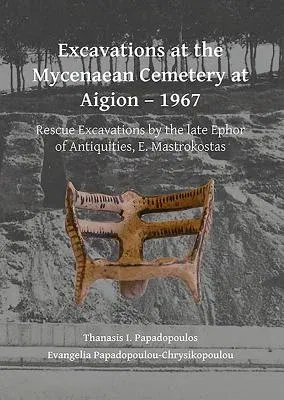Thanasis I Papadopoulos
(Author)Excavations at the Mycenaean Cemetery at Aigion - 1967: Rescue Excavations by the Late Ephor of Antiquities, E. MastrokostasPaperback, 30 June 2017

Qty
1
Turbo
Ships in 2 - 3 days
In Stock
Free Delivery
Cash on Delivery
15 Days
Free Returns
Secure Checkout

Print Length
132 pages
Language
English
Publisher
Archaeopress Archaeology
Date Published
30 Jun 2017
ISBN-10
1784916188
ISBN-13
9781784916183
Description
Product Details
Book Format:
Paperback
Country of Origin:
US
Date Published:
30 June 2017
Dimensions:
24.13 x
17.27 x
1.02 cm
Genre:
Ancient (To 499 A.D.)
ISBN-10:
1784916188
ISBN-13:
9781784916183
Language:
English
Pages:
132
Publisher:
Weight:
340.19 gm